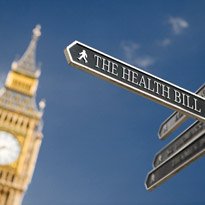RCGP fuels health bill concerns
- 9 May 2011

The Royal College of GPs has sought an assurance from the Prime Minister that the Health and Social Care Bill will not force doctors to breach their duty of confidentiality.
In a letter to David Cameron the RCGP’s chairman, Dr Clare Gerada, said the college has “a number of serious concerns” about the Bill and sets out a series of recommendations.
An accompanying 28 page report goes into more detail on the government’s health reforms and lays out concerns about nine areas of them, including issues relating to market forces and charges for healthcare.
On confidentiality, the RCGP report claims the Bill creates a number of new and powerful institutions with new legal powers to demand information and a new duty placed on GP consortia to comply.
It says the new law would override the long-standing common-law duty of confidentiality.
It adds that the clauses in the Bill relating to the transfer and processing of medical information “give the college concern that the confidentiality of the medical consultation could be undermined.”
It also says that the Bill gives wide powers to the secretary of state and “various administrative organisations”, while failing to clearly define whether information required for NHS management and secondary uses will be protected by existing laws such as the Human Rights Act and the Data Protection Act.
The college report adds that the Bill also requires any provider in the NHS to supply to the NHS Information Centre “any information that the Information Centre deems necessary.”
“This creates a potential direct conflict for doctors between their professional duty and a legal duty, which goes far beyond the traditionally recognised duty to supply information in relation to serious crime, acts of terrorism or serious infection," it argues.
The RCGP is not the first organisation to question the Bill’s impact on confidentiality and consent. The British Medical Association has also raised concerns.
Questioned about this at a recent seminar, Christine Connelly, the NHS chief information officer, said the intention was only to allow the NHS to “draw on the information we have” and the controversial clauses could be revisited.
The RCGP’s report, meanwhile, has been published at the end of a weekend of debate about the future of the Bill, which now appears to be subject to at least two reviews.
One is the ‘future forum’ review being led by the immediate past president of the RCGP, Steve Field, which is due to write a report on the listening exercise it has conducted in the “pause” in the passage of the legislation.
And the other is by a less formal group gathered around the prime minister. The Bill may not return to Parliament until the autumn.
Following the local elections and the loss of the AV referendum, Liberal Democrat leader Nick Clegg told political pundits over the weekend that he wanted to see major changes to the Bill, including a relaxation of its deadline of 2013 for having the biggest reforms in place.
He told the Andrew Marr show that “no bill is better than a bad one” and “I want to get this right.
Professor Field told a live webchat on the DH website this lunchtime that he had access to all consultation responses to the original ‘Liberating the NHS’ white paper, and other reviews. He also said he was listening to a variety of views across the country.
"I didn’t take this for an easy life," he said. "While I’m not politically affiliated and plan to continue to stand back while listening to the debate, I’m not scared to take difficult decisions or to propose changes to the Bill that may be needed."
The RCGP says it is not opposed to health service reform but claims it has set out evidence which contradicts the need for wholesale reorganisation of the health service.
Dr Gerada said: “We believe provider side reforms could deal with many of the issues without the need for repeated organisational change or by many of the proposed reforms.”
The RCGP would also like to see the development of its Primary Care Federations model, in which federations would be created covering GP practices as well as other providers from social, mental health, community and secondary care.
“This model of care puts the needs of patients at the heart of the NHS and is one we would commend to you,” Dr Gerada writes in her letter to the PM.



